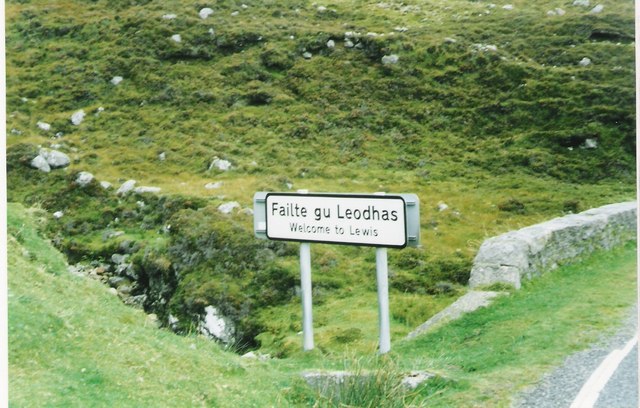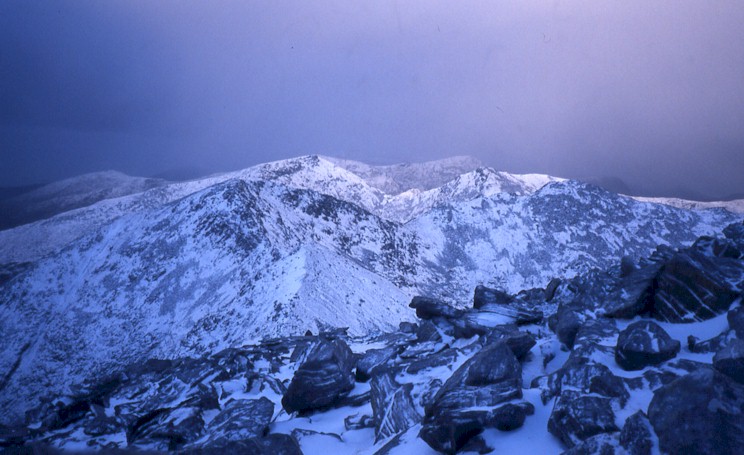|
Sgeotasaigh
Scotasay ( gd, Sgeotasaigh) is small island in the Outer Hebrides of Scotland. It lies off the east coast of Harris and gives some shelter to the ferry port of Tarbert Tarbert ( gd, An Tairbeart) is a place name in Scotland and Ireland. Places named Tarbert are characterised by a narrow strip of land, or isthmus. This can be where two lochs nearly meet, or a causeway out to an island. Etymology All placenames .... There are two houses on the island, a wind turbine and a fresh water tank. Dualchas. Retrieved 3 January 2022. The island had 15-20 inhabitants in the early 20th century but there are no records of any permanent inhabitation since then. [...More Info...] [...Related Items...] OR: [Wikipedia] [Google] [Baidu] |
Sgeotasaigh
Scotasay ( gd, Sgeotasaigh) is small island in the Outer Hebrides of Scotland. It lies off the east coast of Harris and gives some shelter to the ferry port of Tarbert Tarbert ( gd, An Tairbeart) is a place name in Scotland and Ireland. Places named Tarbert are characterised by a narrow strip of land, or isthmus. This can be where two lochs nearly meet, or a causeway out to an island. Etymology All placenames .... There are two houses on the island, a wind turbine and a fresh water tank. Dualchas. Retrieved 3 January 2022. The island had 15-20 inhabitants in the early 20th century but there are no records of any permanent inhabitation since then. [...More Info...] [...Related Items...] OR: [Wikipedia] [Google] [Baidu] |
Lewis And Harris
Lewis and Harris ( gd, Leòdhas agus na Hearadh, sco, Lewis an Harris), or Lewis with Harris, is a single Scottish island in the Outer Hebrides, divided by mountains. It is the largest island in Scotland and the third largest in the British Isles, after Great Britain and the island of Ireland, with an area of , which is approximately 1% of the area of Great Britain. The northern two-thirds is called Lewis and the southern third Harris; each is frequently referred to as if it were a separate island. Etymology The island does not have a one-word name in either English or Scottish Gaelic, and is referred to as "Lewis and Harris", "Lewis with Harris", "Harris with Lewis" etc. Rarely used is the collective name of "the Long Island" ( gd, an t-Eilean Fada), although that epithet is sometimes applied to the entire archipelago of the Outer Hebrides, including the Uist group of islands and Barra. Geography Lewis–Harris boundary The boundary between Lewis and Harris runs fo ... [...More Info...] [...Related Items...] OR: [Wikipedia] [Google] [Baidu] |
Na H-Eileanan Siar
The Outer Hebrides () or Western Isles ( gd, Na h-Eileanan Siar or or ("islands of the strangers"); sco, Waster Isles), sometimes known as the Long Isle/Long Island ( gd, An t-Eilean Fada, links=no), is an island chain off the west coast of mainland Scotland. The islands are geographically coextensive with , one of the 32 unitary council areas of Scotland. They form part of the archipelago of the Hebrides, separated from the Scottish mainland and from the Inner Hebrides by the waters of the Minch, the Little Minch, and the Sea of the Hebrides. Scottish Gaelic is the predominant spoken language, although in a few areas English speakers form a majority. Most of the islands have a bedrock formed from ancient metamorphic rocks, and the climate is mild and oceanic. The 15 inhabited islands have a total population of and there are more than 50 substantial uninhabited islands. The distance from Barra Head to the Butt of Lewis is roughly . There are various important prehistor ... [...More Info...] [...Related Items...] OR: [Wikipedia] [Google] [Baidu] |
Outer Hebrides
The Outer Hebrides () or Western Isles ( gd, Na h-Eileanan Siar or or ("islands of the strangers"); sco, Waster Isles), sometimes known as the Long Isle/Long Island ( gd, An t-Eilean Fada, links=no), is an island chain off the west coast of mainland Scotland. The islands are geographically coextensive with , one of the 32 unitary council areas of Scotland. They form part of the archipelago of the Hebrides, separated from the Scottish mainland and from the Inner Hebrides by the waters of the Minch, the Little Minch, and the Sea of the Hebrides. Scottish Gaelic is the predominant spoken language, although in a few areas English speakers form a majority. Most of the islands have a bedrock formed from ancient metamorphic rocks, and the climate is mild and oceanic. The 15 inhabited islands have a total population of and there are more than 50 substantial uninhabited islands. The distance from Barra Head to the Butt of Lewis is roughly . There are various important prehisto ... [...More Info...] [...Related Items...] OR: [Wikipedia] [Google] [Baidu] |
Scotland
Scotland (, ) is a country that is part of the United Kingdom. Covering the northern third of the island of Great Britain, mainland Scotland has a border with England to the southeast and is otherwise surrounded by the Atlantic Ocean to the north and west, the North Sea to the northeast and east, and the Irish Sea to the south. It also contains more than 790 islands, principally in the archipelagos of the Hebrides and the Northern Isles. Most of the population, including the capital Edinburgh, is concentrated in the Central Belt—the plain between the Scottish Highlands and the Southern Uplands—in the Scottish Lowlands. Scotland is divided into 32 administrative subdivisions or local authorities, known as council areas. Glasgow City is the largest council area in terms of population, with Highland being the largest in terms of area. Limited self-governing power, covering matters such as education, social services and roads and transportation, is devolved from the Scott ... [...More Info...] [...Related Items...] OR: [Wikipedia] [Google] [Baidu] |
Harris, Outer Hebrides
Harris ( gd, Na Hearadh, ) is the southern and more mountainous part of Lewis and Harris, the largest island in the Outer Hebrides, Scotland. Although not an island itself, Harris is often referred to in opposition to the ''Isle of Lewis'' as the Isle of Harris, which is the former postal county and the current post town for Royal Mail postcodes starting HS3 or HS5. The civil parish of Harris is considered to include St Kilda, an uninhabited archipelago west-northwest of North Uist, and the uninhabited islet Rockall, which is west of North Uist. Etymology Harris originates from the Old Norse name Harri, the diminutive of the name Harald. Variants are the Dutch Harrie and the Flemish Hariche. Refer also to country and source abbreviations on page 15 These names derive from the Old Norse root word " hár", meaning "high", with the comparative being "hærri". In the English language name, the addition of the "s" once indicated the plural. The Vikings arrived in the British Isl ... [...More Info...] [...Related Items...] OR: [Wikipedia] [Google] [Baidu] |
Ferry
A ferry is a ship, watercraft or amphibious vehicle used to carry passengers, and sometimes vehicles and cargo, across a body of water. A passenger ferry with many stops, such as in Venice, Italy, is sometimes called a water bus or water taxi. Ferries form a part of the public transport systems of many waterside cities and islands, allowing direct transit between points at a capital cost much lower than bridges or tunnels. Ship connections of much larger distances (such as over long distances in water bodies like the Mediterranean Sea) may also be called ferry services, and many carry vehicles. History In ancient times The profession of the ferryman is embodied in Greek mythology in Charon, the boatman who transported souls across the River Styx to the Underworld. Speculation that a pair of oxen propelled a ship having a water wheel can be found in 4th century Roman literature "''Anonymus De Rebus Bellicis''". Though impractical, there is no reason why it could not work ... [...More Info...] [...Related Items...] OR: [Wikipedia] [Google] [Baidu] |
Tarbert, Harris
Tarbert () is the main community on Harris in the Western Isles of Scotland. The name means "isthmus", "crossing point" or "portage", in Gaelic. The isthmus, between the sea lochs West Loch Tarbert and East Loch Tarbert, joins south Harris to north Harris and Lewis. In 1981 it had a population of 503. Tarbert's Church of Scotland parish church was built in 1862, and is within the parish of Harris. Tarbert also has a Free Presbyterian church. The Very Rev Mackintosh MacKay was minister of the latter in the 1860s. Transport Tarbert has a car ferry terminal which operates to Uig on Skye. The short A868 joins the terminal to the north–south A859 road. Economy The Harris distillery, a Scotch whisky and Gin distillery Distillation, or classical distillation, is the process of separating the components or substances from a liquid mixture by using selective boiling and condensation, usually inside an apparatus known as a still. Dry distillation is the heati ... is loc ... [...More Info...] [...Related Items...] OR: [Wikipedia] [Google] [Baidu] |
Islands Off Lewis And Harris
An island (or isle) is an isolated piece of habitat that is surrounded by a dramatically different habitat, such as water. Very small islands such as emergent land features on atolls can be called islets, skerry, skerries, cays or keys. An river island, island in a river or a lake island may be called an ait, eyot or ait, and a small island off the coast may be called a holm (island), holm. Sedimentary islands in the Ganges delta are called List of islands of Bangladesh, chars. A grouping of geographically or geologically related islands, such as the Philippines, is referred to as an archipelago. There are two main types of islands in the sea: continental and oceanic. There are also artificial islands, which are man-made. Etymology The word ''island'' derives from Middle English ''iland'', from Old English ''igland'' (from ''ig'' or ''ieg'', similarly meaning 'island' when used independently, and -land carrying its contemporary meaning; cf. Dutch language, Dutch ''eiland'' ... [...More Info...] [...Related Items...] OR: [Wikipedia] [Google] [Baidu] |






